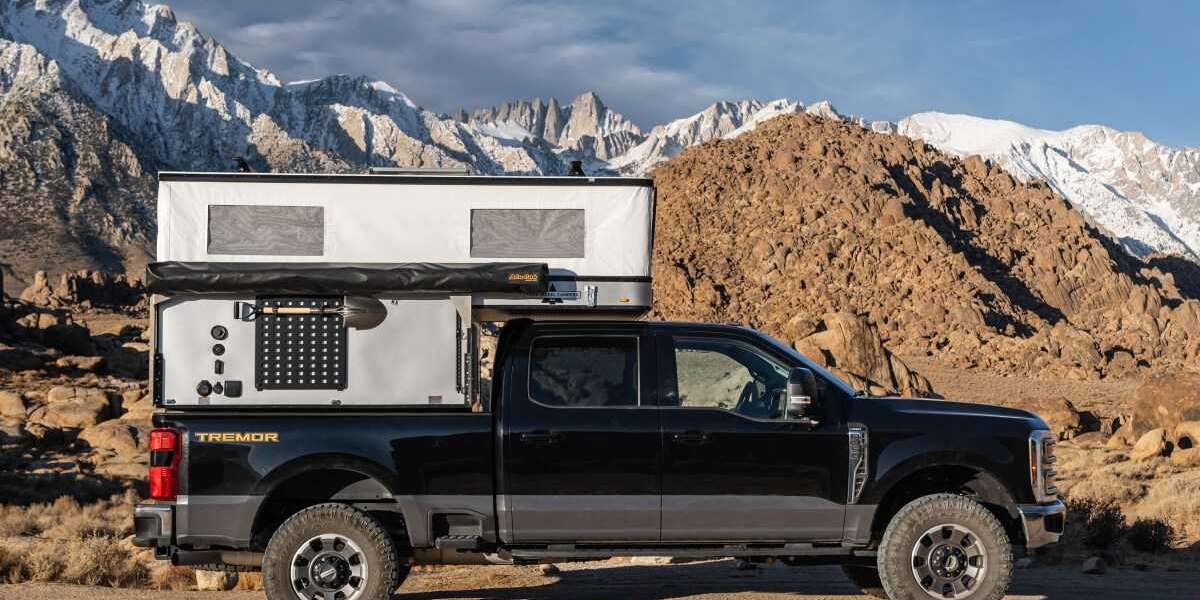Truck camping off-grid is one of the most rewarding ways to experience the outdoors. It gives you the freedom to go where RVs and tents can't, the chance to wake up in untouched wilderness, and the independence of carrying your home on four wheels. But freedom comes with responsibility. Many first-time and even seasoned truck campers make mistakes that can turn an exciting trip into a stressful or dangerous situation. If you want a more detailed look at common pitfalls from experienced truck campers, check out this guide on mistakes truck owners make when camping off-grid.
Planning and Preparation Errors
Trusting only cell service or GPS.
Many remote areas have no signal, and even the best GPS can glitch. Always download offline maps, carry a paper backup, and if you're going truly remote, consider a satellite communicator.
Ignoring weather and terrain.
A dry dirt road can turn into a mud trap after one rainstorm. Snow, wind, and even high heat can affect your trip. Check forecasts and road reports before heading out.
Skipping local rules.
Not every forest road or trail allows overnight camping. Some areas require permits or ban campfires altogether. Research ahead to avoid fines—or worse, being forced to move at midnight.
Vehicle and Equipment Mistakes
Underestimating power needs.
Running a fridge, lights, and devices drains batteries faster than you think. Match your usage with solar panels, dual batteries, or a power station.
Poor storage and weight balance.
Overloaded trucks handle poorly and waste fuel. Keep heavy gear low and centered, and avoid cramming everything into one corner.
No proper tires or recovery gear.
Street tires may get you to the grocery store, but not down rocky or sandy trails. Invest in all-terrain tires and always bring a spare tire, jack, tow strap, and ideally, a winch.
Safety and Self-Reliance Shortcomings
Forgetting first aid.
Cuts, sprains, and insect bites are common outdoors. A well-stocked first-aid kit—and the knowledge to use it—can save you from having to turn back early.
No backups.
If your only stove breaks, you're eating cold beans. Carry at least two cooking options, extra water, and an emergency shelter like a tarp.
Ignoring wildlife hazards.
Leaving food out invites animals. Use bear-safe containers or hang food away from your truck. Respect wildlife from a distance and never feed them.
Food, Water Supplies Mismanagement
Underestimating water needs.
Most people need at least a gallon per day—more in hot climates. Bring extra for cleaning and unexpected delays.
Poor meal planning.
Fresh food spoils quickly without reliable cooling. Mix in dehydrated meals, canned goods, and snacks that last.
Mishandling waste.
Never dump greywater or trash in the wild. Carry trash bags, use portable toilets or designated spots, and pack everything out.
Energy / Power Use Mistakes
Relying only on generators.
Generators are noisy, fuel-hungry, and restricted in many areas. Solar panels and portable power stations provide cleaner, quieter energy.
Mismanaging energy draw.
Running high-watt appliances without the right inverter drains your system. Monitor usage with a battery meter and turn off non-essentials.
Comfort Shelter Pitfalls
Ignoring insulation and ventilation.
Condensation inside your truck can lead to mold. Crack a window for airflow, and insulate for both hot and cold weather.
Wrong sleeping gear.
A summer sleeping bag won't cut it on a chilly mountain night. Match your gear to the climate—and don't forget bug protection.
Poor truck layout.
If you have to unpack everything to reach your bed, camping becomes a chore. Organize gear so you can quickly access essentials.
Logistics Emergency Preparedness
No plan for breakdowns.
Flat tires, dead batteries, and mechanical issues happen. Bring spare parts, tools, and know how to use them.
Not sharing your route.
Always tell a friend or family member where you're going and when you plan to return. If something happens, someone knows where to look.
Running out of fuel.
Remote areas may not have gas stations for hundreds of miles. Carry extra fuel in approved containers and calculate your mileage ahead.
Environmental Ethical Mistakes
Leaving trash behind.
Even small bits of food waste attract animals. Leave no trace—pack everything out.
Unsafe fires.
Campfires cause wildfires every year. Only use fire rings where allowed, and always have water and a shovel nearby.
Disrespecting nature.
Driving off-trail, picking plants, or harassing wildlife harms fragile ecosystems. Off-grid camping should protect the land, not damage it.
Conclusion
Off-grid truck camping can be unforgettable—but only if you prepare smartly and camp responsibly. By avoiding these mistakes, you'll not only keep yourself safe but also preserve the wild spaces you love. Start small, upgrade your setup gradually, and remember: the goal isn't just to survive off-grid, but to truly enjoy the freedom it brings.








